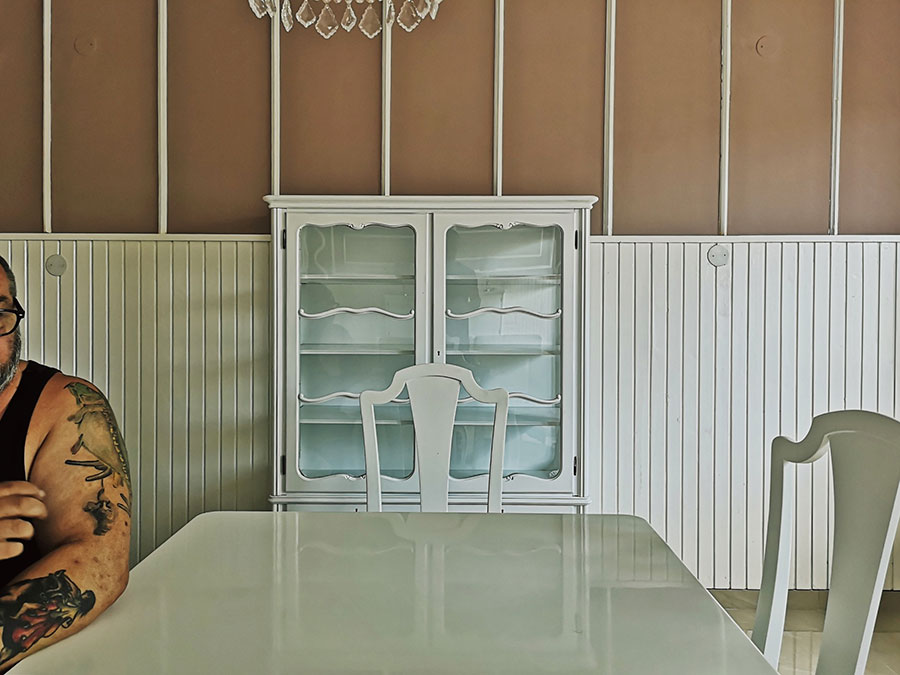
BIA got a new director. Gasic handed over all papers, keys and staff to Vulin. This seems to have woken up the opposition from their stupor, but their astonishment was confusing. It’s difficult to understand from their announcements and statements who they were expecting to see in this position. Allegedly, this scandalous appointment will threaten the security of the state and the citizens, as if we still have any of those things.
Vulin is a fanatical servant, ready to do anything. Anything that is asked of him and more. His ideas are even worse than the orders he receives. He is endlessly mesmerized by the force that gives him power. That perverse relationship is the framework for all the worst that is to come.
The new BIA director does not have the personal strength to do anything of general benefit. He is just a guided missile, shaped by conflicting extreme ideologies and prepared for the ultimate goal. And all this still seems like a new phase of the local dystopia: the Serbian world within the Russian world.
He was and still is the messenger of the Serbian world. This idea that came from somebody else’s head is ridiculous, but seductive, with all Serbs in one state, with as-yet-unknown borders, one party, one will, and one leader. And that leader’s name is known.
There are a lot of dark spots in Vulin’s biography. All of them helped place him in important places where he can shout threats, curses and insults at his neighbors over the fence. His capacity for conflict and excess earned him the favor of the Boss, himself prone to violent outbursts and unpleasant tantrums. Whenever he needed a replacement, Vulin would step in, acting as a stunt double for the nastiest scenes.
Just like his Boss, Vulin was constantly haunted by an insatiable fear of protest, the kind that could bring down everything they were destroying together. They looked to all respectable dictators for a model for suppressing any resistance. The Boss’s choice of friends (Orbán, Erdoğan, Xi, Putin) only confirms that the ideal is an unhindered, long and absolute rule. Vulin went to Moscow to meet with Nikolai Patrushev and learn all about the “color revolutions” and the forces that bring them down.
That Patrushev character is just a slightly repaired, renewed version of the cruel guardians of Stalin’s reign of terror. He taught Vulin that colored revolutions are an accumulated rebellion of opponents of the state and the rulers, enemies from outside with the help of traitors, mercenaries, opposition, independent media and dangerous journalists, people inclined to think and speak freely. He taught him how to eliminate such revolutions. In the decisive phase, there can be no sympathy for the rebels.
Vulin returned from Moscow with renewed fanaticism, ready to view any idea of overthrowing the government as an attack on Serbia. He saw such determination in himself as unparalleled patriotism. But he felt obliged to return the favor to Patrushev.
He eavesdropped on some Russian opposition members who came to Belgrade because they considered it an oasis of some kind of freedom, and handed it over to his mentor (according to the testimony of Russian opposition member Vladimir Kara Murza). Being an oppositionist is not a criminal offense in either Serbia or Russia, but these people ended up in Putin’s prison after returning to Moscow.
This is how Vulin practically became an associate of the secret service of a foreign power, and then the director of BIA.
Vulin is a dangerous specimen at the head of BIA, primarily because he was put there to guard the power of a man who is intoxicated with it to the point of insanity. That monolith, which forms the regime of a frustrated absolutist supported by an illegitimate force, is quite shaken and teetering.
With unbearable pressures from the outside, we are faced with the threats of general poverty and social collapse, energy crisis, isolation and lack of the huge amount of money needed to service the government. The coffers are empty and potential sources of loans are becoming untrustworthy.
The Boss’s phone call to Pink news two evenings ago showed all his fear, nervousness, and lack of any statesmanship. Indecent, foul language, insults for everyone from Rada Trajkovic and Kurti to the EU.
It seems that the regime must collapse under the weight of its own disastrous incompetence, or fully embrace rue with a firm hand and open torture, with a pre-emptive shutdown of all the media they have already set their sights on.
It is possible that we got a local replica of Nikolai Patrushev for just such a final act – his trusted, trained deputy, Aleksandar Vulin, who is already being sewn a new uniform.
Translated by Marijana Simic
Peščanik.net, 09.12.2022.
- Biografija
- Latest Posts
Latest posts by Ljubodrag Stojadinović (see all)
- Biro za izgubljene - 19/04/2024
- Jedan dan sa Dadom Vujasinović - 12/04/2024
- Šapićev hod po grobovima - 05/04/2024


